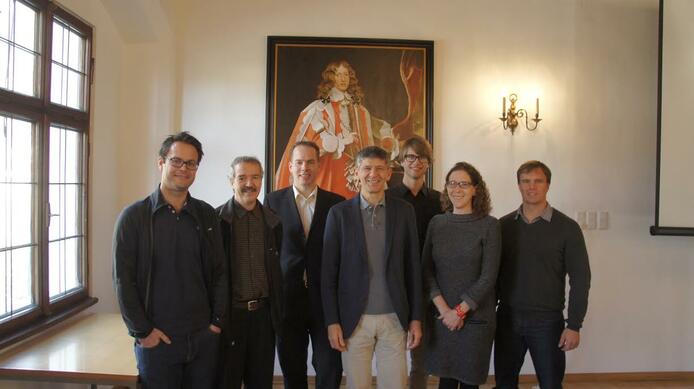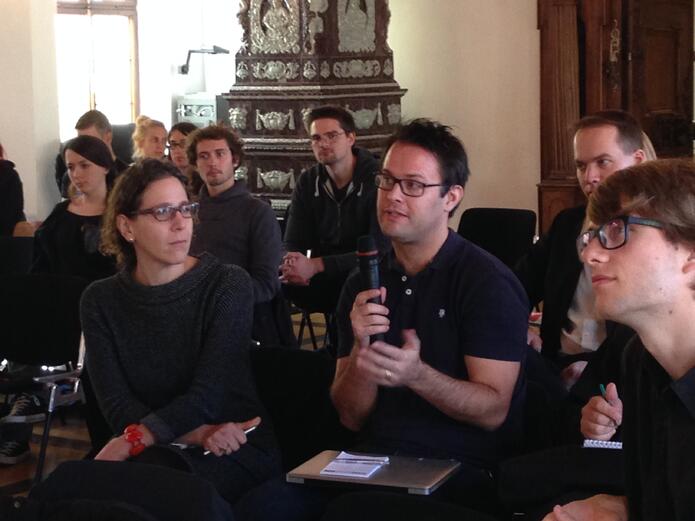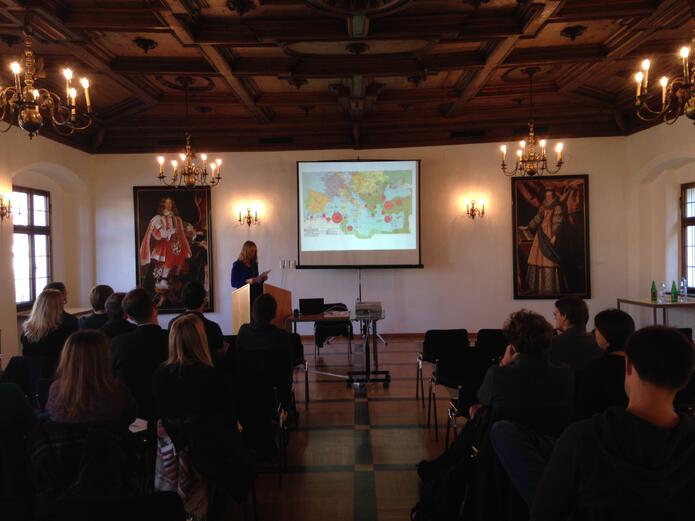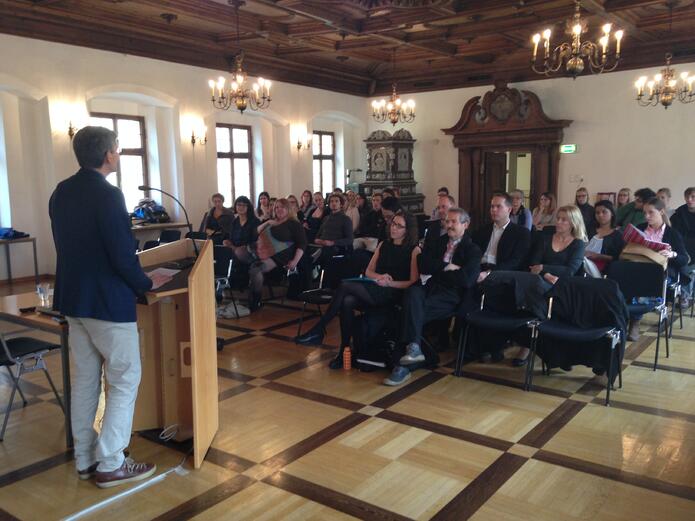American Corner Innsbruck
Mediterranean Piracy and Narratives about Captivity
On November 13-14, six international scholars met at the Claudiana in Innsbruck and addressed issues of Mediterranean piracy, diplomacy and slavery in the course of the conference “Perspectives on Northern Africa in the Early Modern Period.” Narratives written by former captives were at the center of attention.

The six guests, who had been invited as part of the FWF-funded ESCAPE project (“European Slaves: Christian in African Pirate Encounters”), came from five different countries, from Germany and Austria and even all the way from Morocco, Sweden and the United States. This goes to show what a multicultural issue Mediterranean piracy and captivity really was and still is. The goal for this conference was to explore the wide variety of external views on North Africa that originated in the early modern period. It was a time when the Mediterranean Sea stood for both great economic possibilities from trade and severe dangers emanating from European as well as African pirates and privateers. Ships were attacked and crews were captured on both sides. While there is an unfortunate scarcity of sources depicting Muslim captivity in Europe, there is an abundance of narratives written by former Christian slaves who were held captive in Tripoli, Algiers and Tunis, the so-called Barbary Coast states, as well as in Morocco. Traditionally, these texts have been consulted as sources of historical information. And while some of these narratives offer a rich and multi-textured analysis of North African life, working with these texts often entailed sifting through a great deal of bias, stereotypes, plagiarism, and in some cases even plain fictionalization. All of this called into question the narratives’ value as historical evidence.
What is plain to see, however, is the fact that these texts had a great influence on the spreading of ideas and perceptions about North Africa and Islam in the countries where they were published. After all, for many people these narratives were the first and often only source of information about that part of the world. Exploring what notions developed and how they were spread - either by looking at the narratives themselves or by showing their sociopolitical context - was the main objective of this two-day conference.
From Droste-Hülshoff to Franklin
Both Elisabeth Watzka-Pauli from Graz and the American Gillian Weiss put special emphasis on the factor religion. Watzka-Pauli showed how the Austrian province of the Trinitarian order ransomed captives and advertised this at home in order to generate income for future redemptions. Gillian Weiss, on the other hand, analyzed an unpublished captivity narrative written by a French Huguenot and showed how confession influenced chances for redemption. Also Carsten Junker from Bremen and Khalid Bekkaoui from Fez, Morocco, approached a similar issue from two different perspectives. Both discussed the relationship between the U.S. and the North African states. Junker focused on Benjamin Franklin and the discourse on slavery, while Bekkaoui concentrated on the diplomatic relations between the sultanate of Morocco and Washington. Joachim Östlund from Lund University in Sweden and Magnus Ressel from Frankfurt University closed the conference with two excursions into the world of literature. In his talk, Östlund analyzed the common grounds between Swedish captivity narratives and the early picaresque novel. Ressel finally addressed the hitherto mostly unknown backstory of Annette von Droste-Hülshoff’s Die Judenbuche (The Jew’s Beech): the case of a murder and subsequent escape of the perpetrator to North Africa which Droste-Hülshoff’s novella is based upon.
Looking Ahead
Naturally, this conference did not answer all remaining questions about the discourse surrounding Mediterranean piracy. The audience as well as the presenters raised a multitude of important issues that will be addressed by the ESCAPE-members and partners in the following two years and at the next big conference in June 2016. The shift in perspective and the analysis of sources dealing with European captivity promise innovative and groundbreaking new findings.




